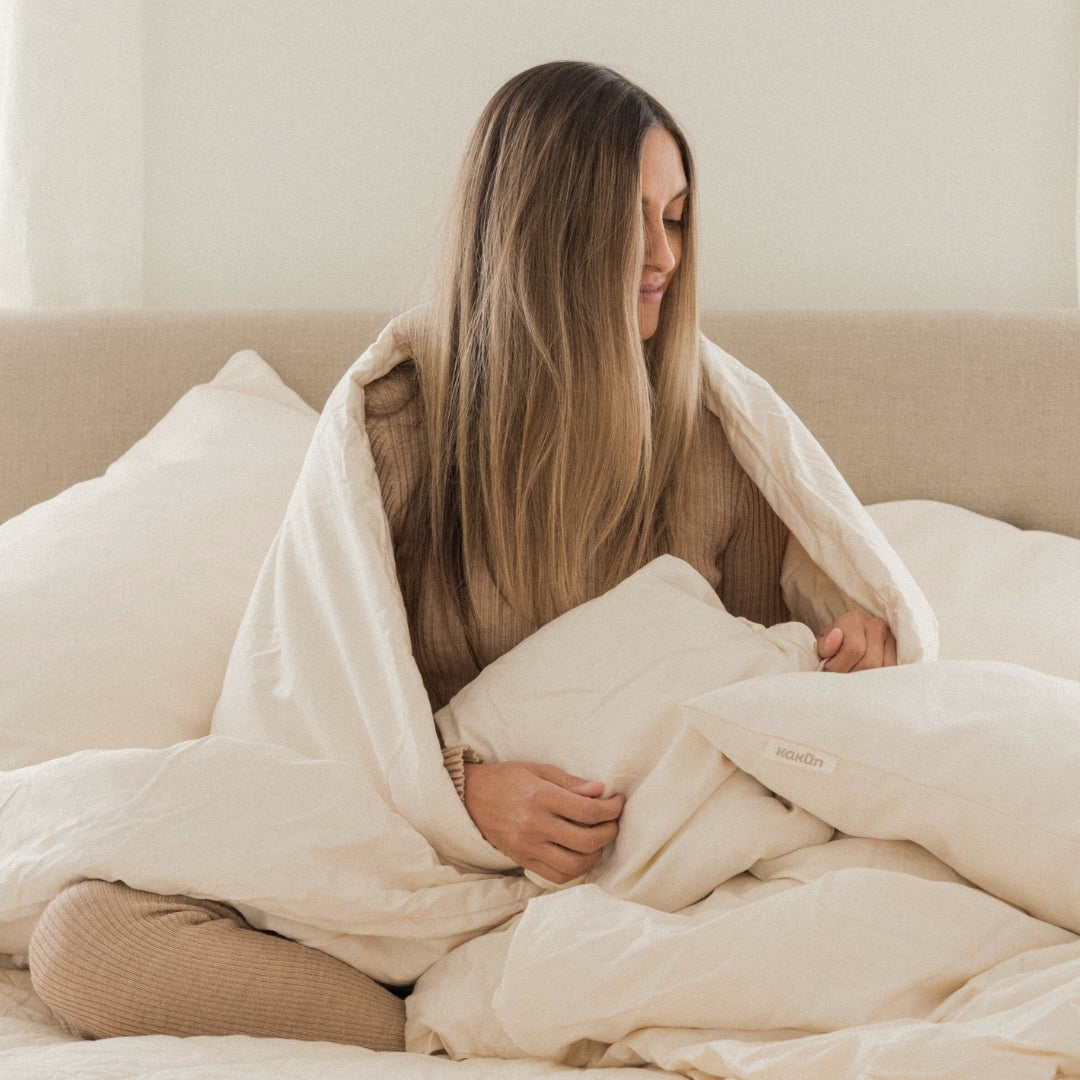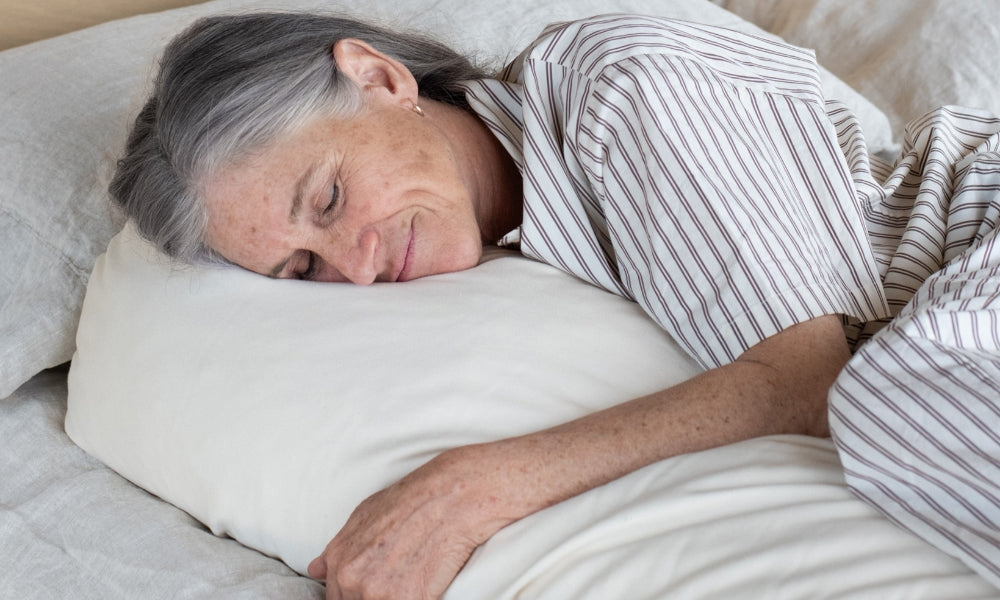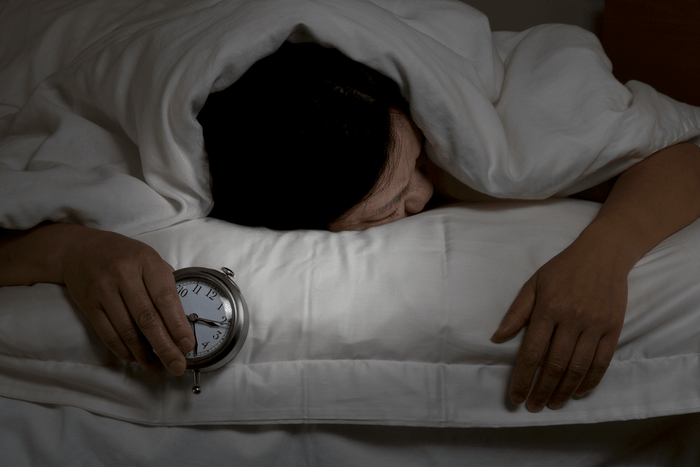I’ve been struggling with getting my sleep more than ever lately; with difficulty drifting off even though I am tired, as well as waking up in the middle of the night and not being able to get back to sleep. While searching for a solution to curb my sleeplessness, I was surprised to learn that I have actually been suffering from insomnia. You see, insomnia isn’t just the inability to fall asleep, it actually encompasses sleep disturbances of many kinds. These include:
- Inability to fall asleep even if tired
- Frequently waking up throughout the night
- Difficulty falling back asleep after stirring
- Waking too early
- Feeling fatigued and drowsy during the day
- Difficulty concentrating or focusing due to lack of proper sleep
As we all have been navigating these uncertain times, we may also have been experiencing an increase in stress induced insomnia for reasons such as:
- Health concerns
- Uncertain future
- Financial instability
- Social challenges
- Heightened emotions
One of the main reasons stress has such an impact on our sleep is its effect on our mental, emotional and physical wellbeing, all of which under strain can have a negative influence on our ability to get a good night’s rest. Heightened stress can also stack up and become challenging to rectify.
If you are experiencing stress-related insomnia, you are not alone. Luckily there are resources on ways we can turn our sleeplessness around. With some forethought and dedication, we can decrease anxiety and stress-induced insomnia. Sleep these days is more precious than ever, providing respite, rest and healing, when we need it most.
We can start simply by preparing ourselves for a good night of sleep throughout the day. Think of your ideal slumber as something that you begin getting ready for from the moment you make your bed in the morning. We have the power through many small decisions to positively influence our quality of sleep.
Here are some useful techniques to help alleviate stress and ensure a better slumber:
-
Perfect your bedroom environment. Noise, temperature and light affect our ability to fall asleep and our quality of slumber once we do. It’s essential to keep these three elements in mind when creating your relaxing bedroom space. A quiet, cool, completely dark room nurtures high-quality, rejuvenating sleep.
-
Form a bedtime ritual by indulging in calming activities an hour or two before bed to help you unwind and relieve your mind of the day's worries. Switch off the screens and try running a hot bath, reading a book, listening to an audiobook or podcast, or writing in a journal.
-
Keeping a journal to write down our thoughts and worries from the day is an effective outlet to express and release them. If there are stressful thoughts holding you back from sleep, write them down, and let go of them for the night. You can always revisit things in the morning after a healing snooze.
-
Sharing and communicating our woes with loved ones will remind us that we are not alone. This can be a powerful opportunity to discover surprising sources of support and solutions. These days this can be done both in person or virtually.
-
Try guided relaxation techniques. They can help to ground us and release the stress that builds up during the day. Meditation before bed can also be advantageous. Try this practice instead of watching TV or scrolling through our devices.
-
Utilizing herbal remedies can help us to decompress and soothe us into relaxation. Chamomile and Passionflower can be used in both tincture or tea form, and have all been widely recognized to calm nerves and initiate sleep. Lion's Mane and Wild Mushroom tinctures are natural sleep regulators and have been known to support our brains’ performance while asleep.
-
Stick to a lights out schedule. Timetables may be very loose right now, but it is good to remember to stick to a regular bedtime routine. This helps to balance our circadian rhythm sleep cycle, making it much more likely to have consistent, higher quality sleep.
-
Lean into your spiritual practices. These can bring a level of stability that is often not found in secular approaches. If you have a spiritual path, follow its teachings and readings. They can keep you in a positive frame of mind with a broader perspective and calming messages of hope.
Dealing with stress is a part of life. At times, it can be overwhelming and feel like it will never go away. Knowing what tools work for you and how to use them to your advantage can give you an upper hand in clearing stress induced insomnia before it sets in. You have the power to transform these challenging emotional states and ensure they don’t hijack your precious sleep.





















